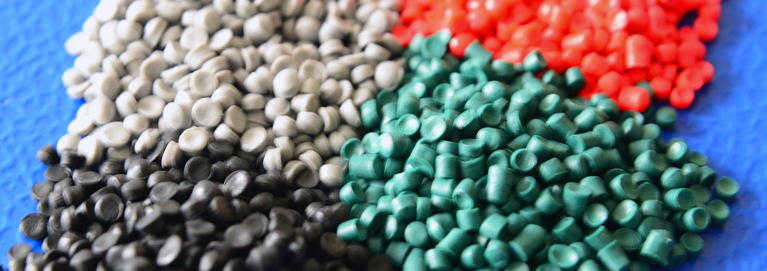
Today, more than ever, it’s essential that businesses are environmentally aware and take measures to lower their carbon footprint, not just through their production process but also in the construction and fabric of their business premises. Choosing the right flooring is one such way that businesses can lower their environmental impact. Large areas such as warehouses and factories need a flooring solution that’s practical, long lasting and environmentally responsible.
PVC flooring is one of the safest, most durable and above all, sustainable floor choices.
A Well-Researched Material
The benefits of PVC have been under investigation for over 50 years now. PVC is commonly condemned as a problem material, however, science & research show PVC has a strong advantage over many materials and has numerous natural benefits. Resource: Life Cycle Assessment of PVC and of principal competing materials
PVC is manufactured according to extremely strict guidelines that are very closely monitored and regulated. The sheer volume of research done supports the fact that PVC is one of the safest materials to use.
So, what is PVC?
(Polyvinyl chloride) is a thermoplastic made up of 57% chlorine and 43% carbon. PVC production saves more natural resource than most other polymers and is less reliant on natural gases or crude oil – both of which are non-renewable resources.
PVC has excellent properties including fire resistance, durability and flexibility. All though the plastic is considered safe, some flooring manufacturers use cheap or untested plasticisers, additives and colouring to change the properties of the plastic in order to save money. Be sure to enquire about this as some additives can be harmful for health and the environment.
PVC’s impact on the environment: CO2 Emissions
When examining the CO2 emissions of a product and its impact on the environment, the entire lifecycle, from production, performance and finally, its disposal, should be considered. Over the course of its lifetime, PVC leaves a lower carbon footprint than most plastics and other types of recyclable materials such as some metals and glass.
PVC has low thermal conductivity – in other words, it has great insulation properties. Heat is transferred through the plastic at a very slow rate, which means it can retain warmth, or cool air for longer periods of time. Subsequently, it helps to reduce not only energy consumption used in heating and cooling large areas, but it also lowers fuel costs.
Less Use Of Natural Resources
Unlike most polymers, PVC is composed of 57% Chlorine, which is derived from common salt and is plentiful. Therefore, PVC directly contributes to saving non-renewable resources such as oil or gas. Most other plastics depend exclusively on oil and when produced, create harmful toxins and waste valuable material.
100% Recyclable
More than 50% of polyvinyl chloride products have a life span of over 15 years and are used in durable applications. Unless modified significantly, PVC is 100% recyclable. A long life span and an easy to recycle material; PVC leaves an incredibly small mark on the environment.
As an environmentally conscious business, we are confident that using PVC to manufacture our floor tiles is the safest, and most sustainable option.
PVC flooring will outlast many other types of industrial flooring. Not only does the flooring need to be replaced less frequently, but at the end of its life span, it can be recycled to reproduce a new floor.
Ecotile manufacture PVC flooring perfect for large industrial areas such as factories and warehouses. Business owners can rest assured that their choice of flooring will help to reduce their carbon footprint while contributing to a safer work environment, and a more sustainable future for human kind.

CEO and founder James Gedye has established Ecotile as the leading provider of interlocking floor tiles to the UK and around the world. Founded in 1996 from his bedroom turned office, James has built Ecotile into a multi-million-pound business, with sustainability still at the heart of his vision.
Based in Luton, Bedfordshire, Ecotile remains a privately owned UK manufacturing company, precision engineering all products in a purpose-built ISO accredited factory.
Leading the company to 2 prestigious Queens Awards in 2017 for Enterprise for Innovation and International Trade, these accolades underline James’ desire to create the highest quality products and fly the flag for British manufacturing. Working directly with leading businesses for over 25 years, James’ Ecotile brand has become synonymous with trust.
Used by 1000s of leading businesses, trusted by the MoD and specified by contractors, Ecotile floor tiles can be found across the world.
Connect or follow James on LinkedIn…

